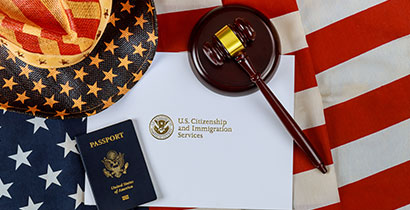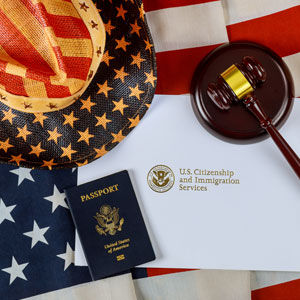
 Who Qualifies For Cancellation Of Removal In Florida?
Who Qualifies For Cancellation Of Removal In Florida?
To qualify for Cancellation of Removal in Florida, you must:
- Have been continuously physically present in the U.S. for at least ten years (measured from the date of the Notice to Appear, if applicable).
- Demonstrate good moral character for the last ten years.
- Not have been convicted of certain offenses, including those listed in INA sections 212(a)(2), 237(a)(2), or 237(a)(3).
In addition to these criteria, your deportation must cause exceptional and extraordinarily unusual hardship to your U.S. citizen or lawful permanent resident child, spouse, or parent.
What Documents Must I Submit For A Cancellation Of Removal In Florida?
To apply for Cancellation of Removal in Florida, you’ll need to submit the following documents:
- Form EOIR-28 (Notice of Entry of Appearance as Attorney or Representative).
- Form EOIR-42B (Application for Cancellation of Removal and Adjustment of Status for Certain Nonpermanent Residents).
- Receipt of Form EOIR-42B (proof of application submission).
- Biographical documents such as a passport, ID, driver’s license, and birth certificate.
- Documents proving hardship, including medical records, school records, or evidence of the hardship that deportation would cause to family members who are either U.S. citizens or lawful permanent residents.
- Proof of continuous physical presence for ten years, such as utility bills, lease agreements, tax returns, and birth certificates of U.S. citizen children.
- Documents showing good moral character, such as recommendation letters from employers, community leaders, or religious figures.
- A list of witnesses who can attest to your physical presence and good moral character.
What Does The Timeline For Filing A Cancellation Of Removal Look Like In Florida?
A Cancellation of Removal application in Florida can be filed any time after removal proceedings begin, but it must be submitted no later than 30 days before the hearing. The timeline includes the following steps:
- Notice to Appear (NTA): You’ll receive this document, signaling the start of the removal proceedings.
- Master Calendar Hearing: These are preliminary hearings where basic procedural matters are addressed.
- Filing of Form EOIR-42B: After removal proceedings begin, you can file this document, the application for Cancellation of Removal.
- Individual Hearing: This is when the case is argued before an immigration judge. The application must be filed at least 30 days prior to this hearing.
The time between these steps can vary depending on the specific case and court schedules.
What Role Does An Attorney Play In Filing For Cancellation Of Removal?
An attorney plays a central role in the Cancellation of Removal process. The outcome can significantly impact your ability to remain in the U.S. This being the case, an attorney will work to ensure your rights are protected while strategically guiding you through the case and all the legal proceedings you’ll be subject to.
Key responsibilities include:
- Case assessment, namely evaluating whether you meet various eligibility criteria, such as continuous presence, good moral character, and hardship.
- Preparing and filing documents. This tends to include gathering evidence to support your application, including proving hardship and physical presence.
- An attorney may expedite or delay your case based on hardship or weaknesses, ensuring you see the best possible outcome.
- Representation, where they advocate for you at hearings and argue your case.
What Are The Fees Associated With Filing For Cancellation Of Removal?
Before filing Form EOIR-42B with the Immigration Court, you’ll need to pay two fees:
- A $100 filing fee, which is required for the form submission.
- A $85 biometrics fee for the collection of relevant biometric data, such as fingerprints and photos.
Both fees must be paid to the Department of Homeland Security before you submit your application. A copy of the U.S. Citizenship and Immigration Services fee receipt and biometrics appointment instructions must also be included with the filing. These documents provide proof that you have paid the fees you’re responsible for paying.
What Happens If My Application Is Denied?
If your application is denied, you may face deportation. You can appeal the decision, however.
Still Have Questions? Ready To Get Started?
For more information on Filing For Cancellation Of Removal, an initial consultation is your next best step. Get the information and legal answers you are seeking by calling (305) 907-6151 today.
